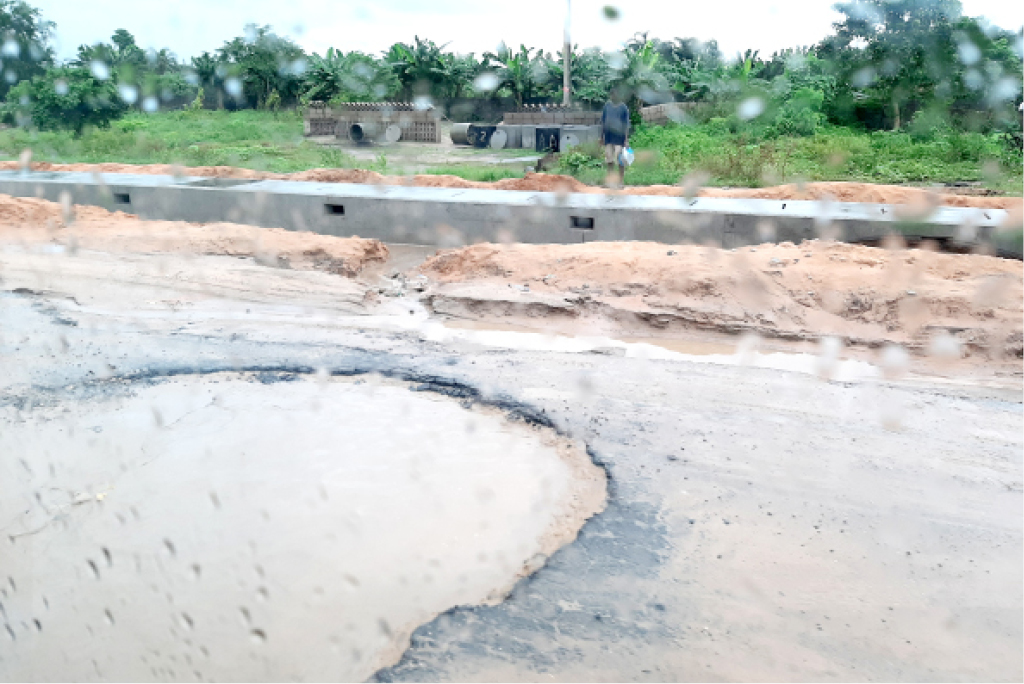Proper funding needed for deteriorating roads
Though the rail network across the nation is being revived, roads continue to play the primary role as far as transport infrastructure in Nigeria is concerned. Of note is that the rate of deterioration and aging of Nigerian roads could be blamed on climate change, but a lot of roads had been repaired by the […]

Bad portions of Lagos-Badagry Highway and abandoned buildings set aside for park and relaxation centre built by the state government
Though the rail network across the nation is being revived, roads continue to play the primary role as far as transport infrastructure in Nigeria is concerned.
Of note is that the rate of deterioration and aging of Nigerian roads could be blamed on climate change, but a lot of roads had been repaired by the Federal Roads Maintenance Agency (FERMA), with attendant reduction of travel time and added value to the people in the communities where the roads pass through, thereby making life more bearable for Nigerians.
From the latest report, in its 20 years of existence, about 7,900 kilometres of roads were maintained by FERMA and that rose from about 3,500 kilometres before 2018. This is primarily because of the level of funding that the ministry has been able to secure for FERMA with the approval of the National Assembly.
While FERMA’s jurisdiction only covers about 18 per cent of the 200,000 kilometres of roads in the country, which is about 36,000 kilometres, it carries about 90 per cent of the entire load of the roads in the country.
Adequate personnel issues, technology, equipment and human capacity deficits remain major challenges but abuse of Nigerian roads is seriously affecting their longevity.
This is also to urge Nigerians to desist from destroying the country’s road infrastructure.
FERMA has a more significant role to play in getting things right, and after evaluation of damages done on affected roads across the states, we require nothing less than N300billion annually for re-fixing of our dilapidated roads.
Engr Nurudeen Rafindadi is the Managing Director of FERMA.
